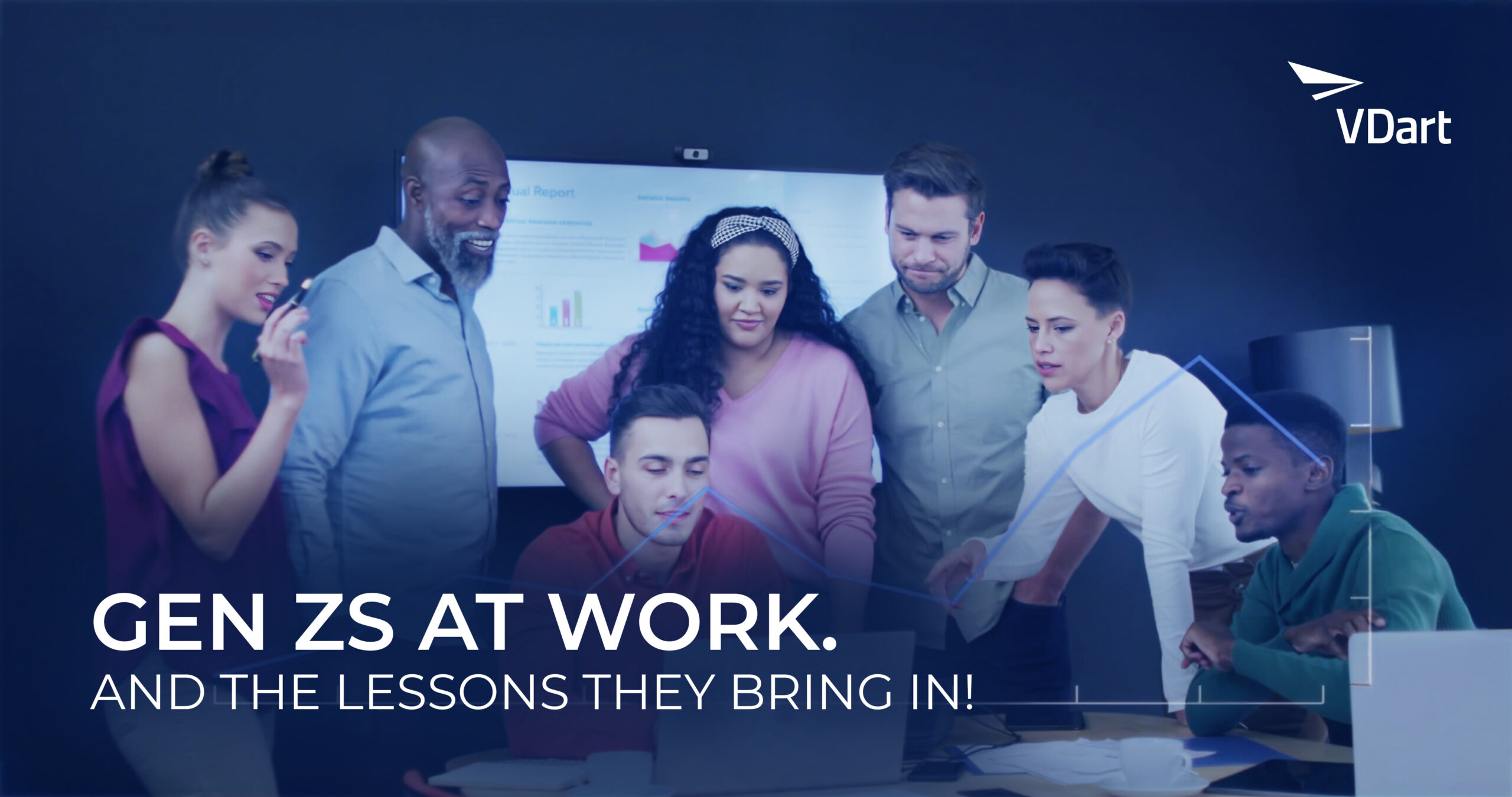
1. Embracing Technology for Maximum Productivity
Generation Z’s adaptability is a boon for productivity, especially in their approach to technology. Unlike previous generations, Gen Z isn’t merely adapting to the existing work environment; they are actively transforming it.

This digital fluency has thrived since COVID-19, with platforms like Zoom, Microsoft Teams, and Slack becoming essential. Generation Z’s tech-savvy nature made the transition seamless for many companies.
Their embracing of technology has led to significant improvements, reassuring past generations about the potential of these tools. As mentioned in a Glassdoor survey, Gen Z is projected to surpass Baby Boomers in the full-time workforce starting in 2024.
2. Valuing Diversity and Inclusion
Generation Z is not just a prominent spokesperson for diversity and inclusion; they are proactive advocates. They speak up against injustices in the work environment, not only when they affect themselves but also their co-workers.
Unlike previous generations that may have been more hesitant to challenge the status quo, Gen Z feels strongly responsible for advocating for what is right, even in the face of opposition.
Also Read: How Outsourced Recruitment Powers Workplace Diversity and Inclusion
This generation’s advocacy extends beyond traditional diversity and inclusion efforts; they also champion intersectionality, understanding that issues of race, gender, sexuality, and other identities are interconnected and cannot be addressed in isolation.
Gen Z employees expect employers to recognize and address these complexities in their diversity strategies. Their commitment to creating a just and equitable workplace means that companies can no longer afford to pay lip service to these issues; they must take concrete actions to support all employees genuinely.
3. Global Perspective
Generation Z’s dedication to diversity and inclusion is not just a local concern but a global one. In today’s economy, their values are shaping workplace cultures worldwide. Young employees at corporations like Unilever ensure that diversity and inclusion policies are consistently applied across all global locations, not just in their home country.
4. A Shift In Priorities: Prioritizing Work-Life Balance and Mental Health
Balancing work, life, and mental health in today’s workplace has become crucial, and Generation Z is leading this change. Gen Z appreciates a comprehensive approach to work that enables them to balance their personal and professional lives, unlike earlier generations, who frequently prioritized job security and financial stability.
Emphasis on work-life balance and mental health is not just a personal preference for Gen Z but a strategic approach to maintaining productivity and job satisfaction. Employers could introduce wellness programs, mental health resources, and opportunities for professional growth, which resonate with Gen Z’s desire for holistic well-being and career fulfillment.
Generation Z also knows how to prioritize work and life. For example, after their nine-to-five, they know how to balance their diet and mental well-being while accomplishing past tasks given to them by higher superiors. They promote a balance of flexible work arrangements that have yet to be done in the past.
After seeing how vital mental health was for its younger staff members, the IT startup Atlassian included “mental health days” in its benefits package. Inspired by Gen Z employees’ comments, this program enables employees to take paid time off to concentrate on their mental health. According to reports, the initiative has decreased burnout and raised general work satisfaction, creating a model that other companies are starting to imitate.
5. Seeking Purpose and Meaning in Work
Employees of the Gen Z generation look for meaning and purpose in their jobs, not simply a salary.
They want to believe that their job has a beneficial influence on society and adds to something bigger. Communicate clearly to ensure your activities align with your firm’s goals and values. Allow staff members to work on essential projects that are consistent with their beliefs. Provide opportunities for leadership in community engagement and innovative problem-solving. Volunteer opportunities, societal issue-addressing applications, or business social responsibility activities. Doing this draws in enthusiastic workers dedicated to changing the world.
Generation Z continues to enter and influence the workforce, and we can expect workplace practices to become more innovative and forward-thinking, leading to a more optimistic future. This age’s passion for advancement and change is a stimulant for ongoing development, guaranteeing that workplaces continue to be robust, relevant, and equipped to face future difficulties.
Let’s work together to drive meaningful change and success. Reach out to VDart to discover how we can support your growth. We’d love to hear your thoughts, stories, and questions about making workplaces more inclusive.
Employees of the Gen Z generation look for meaning and purpose in their jobs, not simply a salary. They are drawn to businesses with a distinct mission and core beliefs that coincide with their own.

